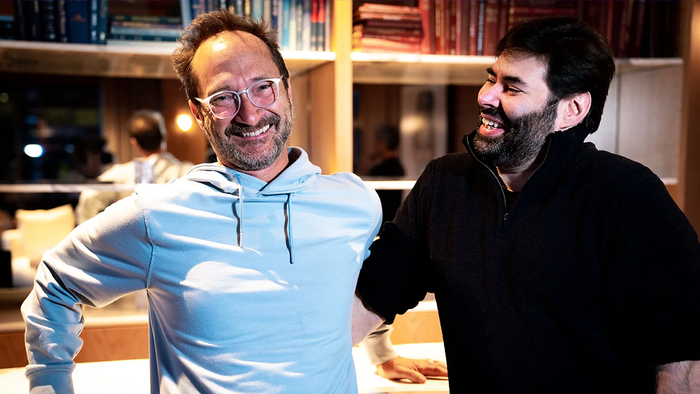
Featured Blog | This community-written post highlights the best of what the game industry has to offer. Read more like it on the Game Developer Blogs.
Violence is Stale - Give Us a New Controversy
A post concerning the age old topic of violence in video games. Though it's been argued by many, and better people than I, I wanted to express why I don't think this debate is necessary anymore.

I write this post following comments from Activision that were published on IGN. The publishing CEO Eric Hirshberg complained that representation of extreme violence in video games is received negatively in the press, and made the point that film and the mass media never receives the same wrist slapping. This debate is not new.
There has always been an issue with violence in games. The argument that violent games make violent people has been in the news off and on since I don't know when. I believe that the first time I became aware of it was when Manhunt was forbidden to be sold in at least the UK. This was due to the fact that a Leicestershire schoolboy named Warren LeBlanc placed his inspiration for killing a class mate, Stephan Pakeerah with this particular title. As a results the sequel was not sold in this country.
However, I will bring to light that many a similar claim has been made about films throughout time. For example, Daniel Gill and Robert Fuller were sentenced to juvenile hall after attempting to murder a bloke named Ashley Murray. They claimed that they couldn't clearly distinguish the lines between reality and make believe after watching the film which led them to stabbing the man eighteen times. However, as is obviously clear, this film was not banned. It's still available today with the others in the series.
Now one could argue that the content of each example are different in extremes, with Manhunt being the most brutal and gruesome, but that's not what would inspire somebody to kill someone. Method doesn't dictate desire. If somebody has an urge to commit murder, I don't believe that it would depend on the methods used in the tool of inspiration. It would simply rely on the intent to kill, or the act of killing to trip that switch which turns someone from a rather worrying individual to a stone cold killer.
There is also the argument that, regardless of what medium is blamed for instigating murder, there are countless others who experienced the same media and carried on living just fine, without any urges to kill a person.
This leads me on to establish the main reason this argument exists. It is simply that a video game is interactive, that you control much of the experience of violence. You are the active party in that event, rather than an on looker.
Well firstly I'll say that if one was to watch somebody murder a person and enjoy it as a source of entertainment, would that make them a better individual than the murderer themselves. So if we say games inspire murder, we must at least say that film inspires a sense of sadistic voyeurism.
However, nobody would claim that as film is beyond the controversy of violence. The days where Psycho was considered a horrific display of violence are long gone, and in an age where violence is part of our daily lives as prolific consumers of mass media, film has managed to duck under the radar.
If we stick on the point of interactivity. it's also worrisome because we as humans learn best through action. We pick up skill by doing more effectively than reading or watching. However, as analytical beings, surely we can assume that not everything we do is taken as gospel matter of propriety. Surely we can come to realise that we deal in metaphor and symbolism day to day as we represent the elements of life. Can we not therefore negate the belief that by playing a game that has a lot of abuse and anger, we ourselves become angry and abusive?
A human being begins to develop the ability to analyse reality as a toddler. It's safe to assume that by the age of adolescence, the difference between a game and real life is fairly clear, especially because they have picked the controller up, plugged the console in, put the disc in and switched on the TV, all before they even started playing.
Yes, games are influential. These influences are generally imprinted when they are subtle. This is why it's a good teaching tool, and I'm not arguing against that. But the way influence in games generally works is by being covert. We are not supposed to realise that these are being fed to us.
Everybody is aware of violence in games, because it is so clearly stamped in every gun fight, every chainsaw massacre, and every Michael Bay moment. It happens so much in action games, like Call of Duty that we take it as a trivialisation of war, which is exactly what it is.
I believe that people in a position to change the view of the globe about violent games generally take a wrong turn in their appeals however. Hirshberg is no exception. He is trying to generalise media. Video games have always been a different ball game to film and mass media. The communcation between developer and player is so far from that of a film director and an audience. I wont go into detail about what those differences are, as that's for another post, but those differences do exist.
The response to that generalisation is "Yes but in a game you are taking part in that violence". As I've already explained, that means absolutely nothing for a stable mind. The enjoyment of that violence becomes clear when it's considered as a trivialisation.
In first-person shooters, the excitement is in the reflexive challenge. It's a faster paced, at range game of tag. If there is a single player campaign, it teaches you how to use the tools at your disposal, while you shoot at programmed 'bots', where as multiplayer allows you to enhance the basic skills you learned in single player. You run around in an arena, with a selection of attributes at your disposal, a knife, a grenade, a main gun and a pistol. You work in a team, or on your own, but essentially you are trying to tag the opponent(s) more than they tag you to express your overpowering mastery of the game. Much of the time it is this egotistical display that dominates the enjoyment of 'violent' games like this.
I would challenge anybody without a pre-considered opinion about violence in video games to play one, and see if they feel like murdering somebody afterwards. One in fifty-thousand might, and they are the one you strap to a table in a padded cell.
About the Author(s)
You May Also Like













